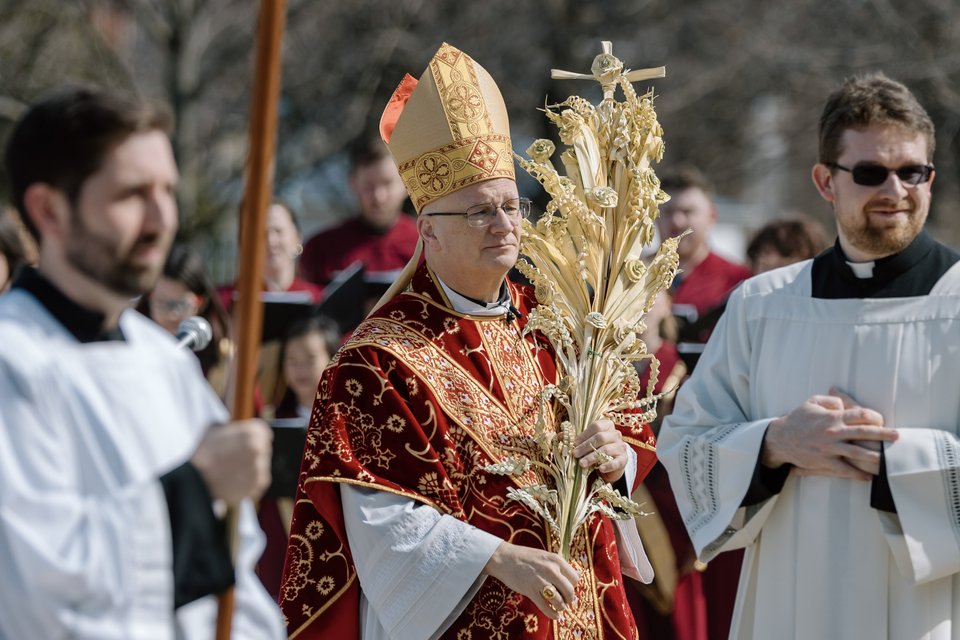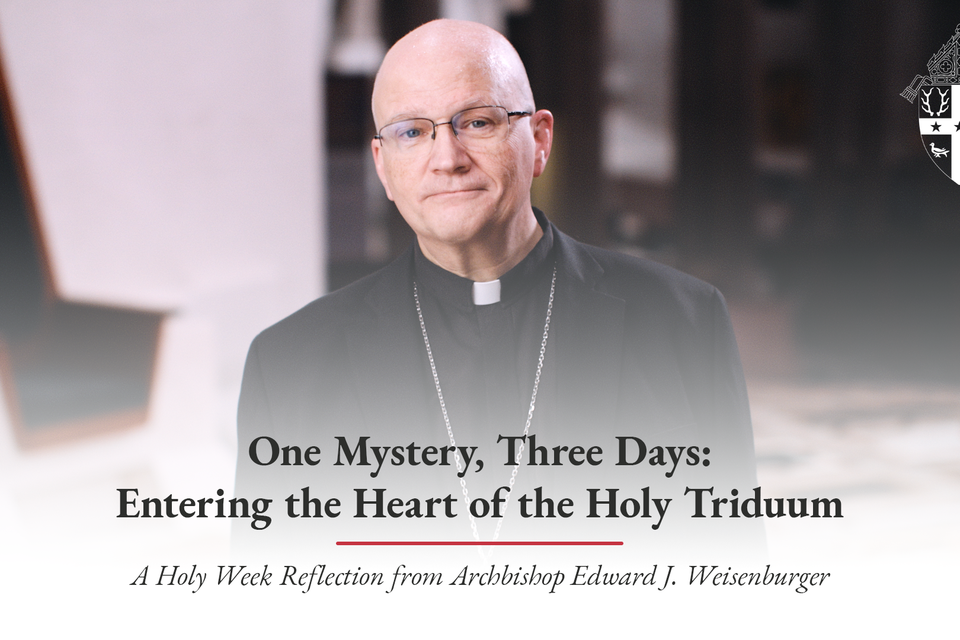(OSV News) -- As Minnesota ramps up its legalized cannabis industry, the state's bishops have issued a pastoral letter warning of the dangers of marijuana.
"Living in the Real: A Short Primer on the Risks of Marijuana Usage" was recently released by the Minnesota Catholic Conference. In the 22-page document, the bishops -- who had opposed the state's legalization of recreational marijuana in May 2023 -- urge Catholics "not to engage in, support or profit from the recreational use of marijuana."
The document, available online at the conference's website, counters several common arguments advanced in support of recreational marijuana, drawing on Scripture, Church teaching and scientific research. Social media graphics and flyers regarding the document are also available for download.
Minnesota's legalization of recreational marijuana created a "pastoral problem," since "law is a teacher," Bishop Andrew Cozzens of Crookston, Minnesota told OSV News.
"When laws say something's okay, then naturally people begin to think it's okay," he said.
In particular, said the bishops in the document, "we are concerned that this recent change in state law may encourage people who previously never would have used marijuana to consider trying it."
"Unfortunately, this is a case where the law is teaching people something that's harmful for them, both humanly and spiritually, both on a natural level and on a spiritual level," Bishop Cozzens told OSV News.
While "many believe that marijuana is a harmless drug that can be enjoyed recreationally without fear of physical, mental or spiritual harm," wrote the bishops in the document, "sadly, it has been shown through scientific studies and many broken lives that this is not true."
Researchers from the Copenhagen Research Center for Mental Health and the U.S. National Institute on Drug Abuse found in a study published in 2023 -- assessing more than 6.9 million individuals across Denmark during the years 1972 to 2021 -- that 15-30% of cases of schizophrenia in males aged 16-49 could be attributable to cannabis use disorder. Among females, the rate was 4%.
A study published in 2021 by University of Utah researchers found legalizing recreational marijuana in Oregon increased property and violent crime, and retail sales of the drug were associated with a spike in property crimes.
Other studies show that marijuana use significantly impairs brain development in teens and young adults, the bishops noted in their pastoral letter.
The Minnesota bishops noted that Catholic teaching on drug use is "clear," citing the Catechism of the Catholic Church, which states that "the use of drugs inflicts very grave damage on human health and life" and -- except for strictly therapeutic purposes -- constitutes "a grave offense."
Although "drugs themselves can sometimes be a source of healing and recovery, they are often misused as a means of freedom from mental and emotional pain," leading to addiction and harming relationships, wrote the bishops.
They stressed that "persons who use marijuana for medical purposes should only do so under direct clinical supervision by a licensed health care practitioner, as the prevalence of addiction is present in both medical and recreational marijuana users."
Bishop Cozzens also told OSV News he believed "the jury's still out" on medical applications of marijuana and that "a lot of the push for medical marijuana was driven by an industry that wants to profit from the sale of marijuana, and wasn't done simply because of concern for people in serious medical situations -- but was rather ... with this idea towards the general legalization, which they've accomplished now in many states."
Currently, recreational marijuana is legal in 24 states, and medical marijuana is legal in those states plus 13 others.
The risks of marijuana use are even greater now, since "most people don't know how dangerous and potent marijuana is today," Bishop Cozzens said.
Levels of THC (tetrahydrocannabinol, the psychoactive compound in marijuana) in cannabis content have drastically spiked in recent decades), from about 4% in 1995 to 17% and higher as of 2017, with some oils and edibles containing as much as 90% THC, according to data cited by the Yale School of Medicine
Bishop Cozzens told OSV News that with Minnesota's legalization, users may think "this was the marijuana I smoked when I was 17 and at a rock concert.
"And it's not that marijuana, it's much more dangerous," he said. "Even that wasn't helpful for you, but it's much more dangerous than what was present even 10 years ago."
The bishops noted in their document that consuming "microdoses" of marijuana -- as in gummies or seltzers -- "can pose risks to one's physical, mental, social and spiritual health." The document also addresses the "alleged moral equivalency of alcohol and marijuana," stating that although "some comparisons are indeed apt," the latter drug's potency more clearly points to an intention of altering mind and mood than moderate, socially acceptable consumption of alcohol.
That clarification is an essential part of the document, which includes a robust question-and-answer section and numerous citations, as it seeks to be a "proactive" guide for parents and pastoral leaders, Jason Adkins, executive director the Minnesota Catholic Conference, told OSV News.
"We have ministers at (campus) Newman Centers, for example, coming to us," he said, adding that they are getting questions from students and young people asking, "'Now that this is legal, what's permissible? Can I have THC seltzers or have these products?'"
But turning to THC as a means of relaxation or relief from negative emotions "doesn't actually solve your real problems and doesn't lead to real happiness," said Bishop Cozzens. "Real happiness is found in the real world, through living a virtuous life."
Such a life flows from an experience of Christ's love, particularly in the Eucharist, he said.
"Instead of escaping through a drug, learning to have a space for silence, for encounter with the Lord -- that can be hugely transformational person for any person," he said. "As I draw close to Jesus in the Eucharist, I receive a supernatural strength that brings healing to trauma; that restores me to right relationship with God and with the church."
The Minnesota bishops' letter follows a previous pastoral letter on the dangers of marijuana released by Archbishop Samuel J. Aquila of Denver in November 2023. Bishop Cozzens told OSV News he would love to see the U.S. Conference of Catholic Bishops eventually take up this topic as well.









